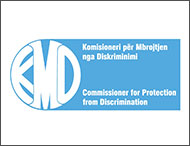Information for Parents

You think your child is gay, lesbian, bisexual, transgender?
Do not panic. If you think or learn that your child is gay, lesbian, bisexual or transgender you will for sure have many questions. What you need now is enough time to get used to the new situation. First of all do not forget that you are not alone. According to many statistics, one in three or four families have a close relative who is LGBT. Do not forget that you love your child and that now it is time to strengthen and improve your relationship with them. It is time for you to understand the situation and to gradually accept it.
The fault is mine. I failed in my duties as a parent.
You have not made any mistake. The idea that parents play a role or have done something for their child to be LGBT is a myth. Sexual orientation is stronger and deeper than social factors. Nobody, not even you, have not influenced your child’s sexual orientation. More importantly there is nothing wrong with your child being LGBT. Some people just aren’t heterosexual. Your duty is to stay by your child in this process and to understand them.
How to adapt to the new situation:
- Engage with your child. Despite the fact that they are gay, lesbian, bisexual or transgender, your child deserves all the care, respect, information and support. Ask careful questions, listen to your child, understand them and stay close to them.
- “Get back to school”. Learn about sexual orientation and gender identity. Learning about these issues is something like studying a new language. There are terms, techniques which help you to communicate adequately with your child and with other persons. Do not fear learning something new.
For example: sexual orientation describes a constant model/structure of emotional, romantic and sexual attraction, or their combination, towards the opposite sex, the same sex, both sexes and neither of the sexes and the genders that accompany them. These attractions stand under the nominations heterosexuality, homosexuality, bisexuality and asexuality. According to the American Psychology Association, refers to the feeling or “personal and social identity” of the person based in one of these attractions, the behaviours expressing them and belonging to communities which share these views.
Sexual orientation is a term used often to describe romantic, emotional or sexual attraction of a person towards another person. Someone who is attracted of the same sex has a homosexual orientation and can be called gay or lesbian. Individuals who are attracted by persons of the opposite sex have a heterosexual orientation. Sexual orientation is a process which deepens with the passing of time and individuals who are attracted both to men and women are called bisexuals. Sexual orientation is different from gender identity, which refers to inner feelings that show if someone is male or female.
Gender identity is the way a person self-identifies with a gender category, such as being a man or woman, or in some cases none of them, which can be different from the biological sex. Basic gender identity is usually formed around the age of three and is extremely difficult to change after this age. In most societies there is a basic division between gender attributions given to male and female. However, in all human societies, some individuals do not identify with the gender assigned to them because of their biological sex.
Some tips:
- Get to know the LGBT community. What type of information is available? Are there LGBT organizations in the country? Are there publications and books around this topic? Discovering such materials online is a good start.
- Explore the internet. The information that you can find online is increasing in size and quality. LGBT organizations and others have plenty of information on this issue;
- Being gay or lesbian is not everything. Even though discovering and coming to terms with sexual or gender identity is important for your child, don’t forget that this is not their entire life. Try to help your child to engage with school, sports, different hobbies or finding a job;
- Do not speak to other people about your child without them being informed. Your child’s trust is the most important thing;
- Appreciate the fact that your child has spoken to you openly. The more trust you build with your child the better communication you will have. If you keep a negative stance or even worse you punish your child for coming out, you will lose their trust;
- Learn more about the social and political situation of LGBT people. Do not forget that your contribution can play a great role in changing social perceptions. Most people base their opinion about LGBT people on social perceptions. Changing your own perceptions and opinion can have a chain effect on your circle of friends and colleagues.
I want my child to be heterosexual. Being homosexual, bisexual or transgender is not normal;
It is normal to think that this might be just a phase, a moment of exploration or rebellion. However, this is not true. Think about it. Our society is so anti-gay and homophobic. Why should a child or teenager choose to be gay / lesbian in such an unfriendly environment? Have you ever thought asking someone: “Are you sure you are heterosexual? Maybe it is just a phase?
Do not forget that homosexuality is a natural phenomenon in most species in nature. Being homosexual is as natural as being heterosexual. We do not know for sure why there are homosexuals, but what we know for sure is that they have always existed. For LGBT people that’s what being normal means. Being gay or lesbian is not behaviour, a dress code or fashion. It is a very fundamental part of a person’s identity, just as being heterosexual can be for someone else.
Being homosexual is not a choice, just as you did not choose to be heterosexual. Even though in most parts of the world homosexuals are considered deviant and abnormal do not forget that the most important and serious scientific institutions have very normal and accepting opinions of LGBT people. This should serve to understand that just because society dot not approve of LGBT people is does not mean you should do the same. Imagine for a moment, if someone tried to turn you from heterosexual to homosexual.
The religion we belong to does not approve of and condemns homosexuality
It is a known fact that most religious institutions do not approve of homosexual and transgender people. However you should not allow yourself to become biased between the love for your child and faith in God. Do not forget that sacred books have been written in determined social and cultural contexts and do not correlate directly to our context. Many of the things that are said in sacred books can have negative effects on some people. Do not forget the main purpose of your faith. It requires you to have love, faith and goodness above anything else. Try to explore your feelings and thoughts. The best thing you can do is transmit to your child the values that your faith entails and not to distance them from it.
How will my child create a family?
Differently from wrong interpretations made often in the media and society, LGBT persons are able to love and stay in close relations just as much as heterosexual couples. What makes it difficult for them is the lack of legal, social and cultural spaces where to function as couples. Keep in mind that LGBT people are as able to have children as heterosexuals, and luckily today, thanks to social conditions, there is a lot of possibilities and choices to create a happy and healthy family.
I fear that my child will suffer from attacks and discrimination at school, the workplace and society;
It is true that LGBT people, adult or not, suffer from discrimination, bullying and violence. However, do not forget that most people are victims of discrimination and this can be for many reasons, including their perceived sexual orientation or gender identity. What makes a difference in this case is the way you behave around it. First of all you have to observe carefully, if your child is victim of bullying and discrimination. If you realise that your child is going through some trouble try to communicate with them as openly as possible, so that they can open up about their issues. This was you will be able to assess how serious it is. Further, try to observe how your child is responding to the situation. At last, see the possibility of consulting with a psychologist, LGBT organizations, school authorities or even the police.
Meanwhile do not forget that social attitudes towards LGBT people are changing as society is receiving more and more information.
Acceptance of homosexuality by a parent:













